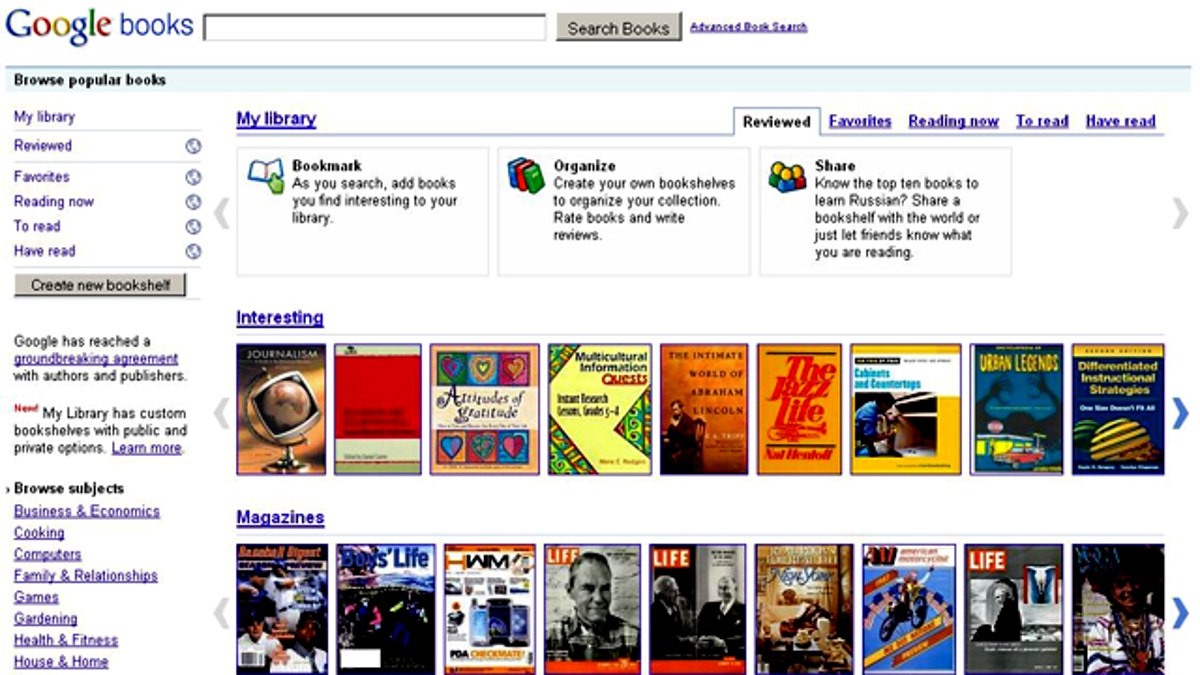
From the Google Books site seen here, the company will start selling books, an attempt to crack into the market of distributing current and backlist works. (Google)
Saying Google had overstretched, a federal judge on Tuesday rejected a deal between the giant search engine and lawyers for authors and publishers that would have let the company make money presiding over the world's largest digital library.
U.S. Circuit Judge Denny Chin in Manhattan said the creation of a universal library would benefit many but would "simply go too far." He rejected a $125 million settlement that was opposed by Google rivals, consumer watchdogs, academic experts, literary agents and even foreign governments.
Google has already scanned more than 15 million books for the project.
Chin said the settlement that the company reached with U.S. authors and publishers would "grant Google significant rights to exploit entire books, without permission of the copyright owners."
The deal gives Google "a significant advantage over competitors, rewarding it for engaging in wholesale copying of copyrighted works without permission, while releasing claims well beyond those presented in the case," Chin said. He noted that many of the concerns raised in objections to the settlement would go away if it were converted to an "opt-in" settlement from an "opt-out" settlement.
Hilary Ware, Google's managing counsel, called the decision disappointing and said the company was considering its options.
"Like many others, we believe this agreement has the potential to open up access to millions of books that are currently hard to find in the U.S. today," Ware said in a statement. "Regardless of the outcome, we'll continue to work to make more of the world's books discoverable online through Google Books and Google eBooks."
The judge acknowledged in his decision that there are many benefits to Google's project, including that libraries, schools, researchers and disadvantaged populations will gain access to far more books; that authors and publishers will find new audiences and new sources of income; and that older books -- particularly those out of print -- will be preserved and given new life.
The case developed after Google in 2004 announced it had agreed with several major research libraries to digitally copy books and other writings in their collections. The authors and publishers sought financial damages and a court order to block the copying when they sued Google in 2005 after Google failed to obtain copyright permission to scan the books.
Google A deal was first reached to settle the claims in 2008 and was tentatively approved by Chin in November 2009.
Since presiding over a hearing on the case in February 2010, Chin has been elevated to the 2nd U.S. Circuit Court of Appeals. He acted in the role of a district court judge to rule on the case.








































